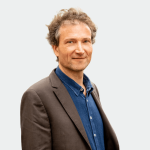
Impossible to locate on a map, Chisinau will be thrust into the spotlight on 1 June. By welcoming 47 heads of state and government from across the continent, the Moldovan capital will become the capital of Europe for the duration of a summit. This summit of the European Political Community (EPC), a new and evolving format born out of Russian aggression and the need for European leaders to come together, regardless of their current, past, future or unconsidered membership of the European Union. The second summit of its kind, after the inaugural one on 6 October, it is the largest international political event ever hosted by this city in Bessarabia. The feat of organising such a major summit is in itself an act of resistance against the attempts to destabilise this former Soviet republic. Moscow is encouraging the secession of part of the territory, where Russian troops are stationed illegally. By setting foot in Moldova, European leaders are standing united behind this landlocked country, which has been directly affected by the war in neighbouring Ukraine and has taken in more than 700,000 displaced persons. They are sending a peaceful but firm message to Putin that his supposed sphere of influence has been shattered, that the sovereignty of this small neutral country must be respected and that its aspirations to join the EU should be encouraged. The same applies to the reforms undertaken to this end by President Maia Sandu, on which the Commission will give its initial assessment this month.
Based on the equality of its member countries, regardless of their weight, the EPC takes the opposite approach to imperial logic. The leaders of small countries rub shoulders with the big ones. Those negotiating EU membership converse informally with their European counterparts, without the label of “candidates”. The Chisinau summit reminds us that, with 47 members, Europe remains in many ways a collection of small states. That peace on the continent depends on their equal dignity and that their geographical proximity binds their interests together. In Chisinau, the whole of Europe is showing itself to the world and to itself.
What about the day after? Once the ‘family photo’ has been taken, the delegations have packed their bags and the media have deserted the streets of Chisinau, Moldova will return to its deliquescent state of a society riddled with corruption, a population in exodus and an economy based mainly on agriculture, whose falling GDP makes it one of the poorest countries in Europe (the minimum wage is less than 50 euros per month).
Moldova must be spared the scenario of the Western Balkans. This June, the latter are commemorating another summit, held 20 years ago in Thessaloniki, where European Union leaders promised the region imminent accession. The time has now come to urgently break the deadlock in negotiations for accession, which would be best achieved in stages. More than just hosting a prestigious one-day summit, Chisinau is projecting itself in the long term as the capital of a European Union member state. Tens of thousands of residents joyfully expressed their desire for this on 21 May.
Despite its fragilities, Moldova can also embody hope for the enlarged Europe of tomorrow. The country is experiencing its democratic alternatives without drama. It is breaking free from its dependence on Russian gas. Its frozen conflict with Transnistria has not resulted in any deaths. And the modus vivendi it is seeking to establish with this separatist region could even be of interest to Ukraine in resolving its own territorial issues with Russia. We must return to Chisinau without delay.




